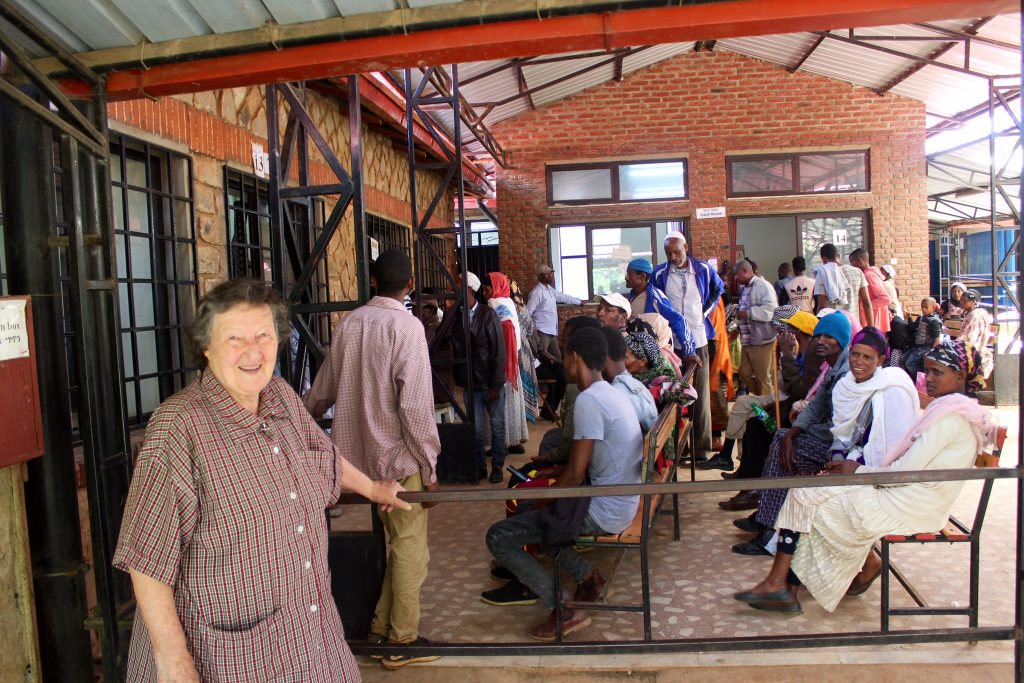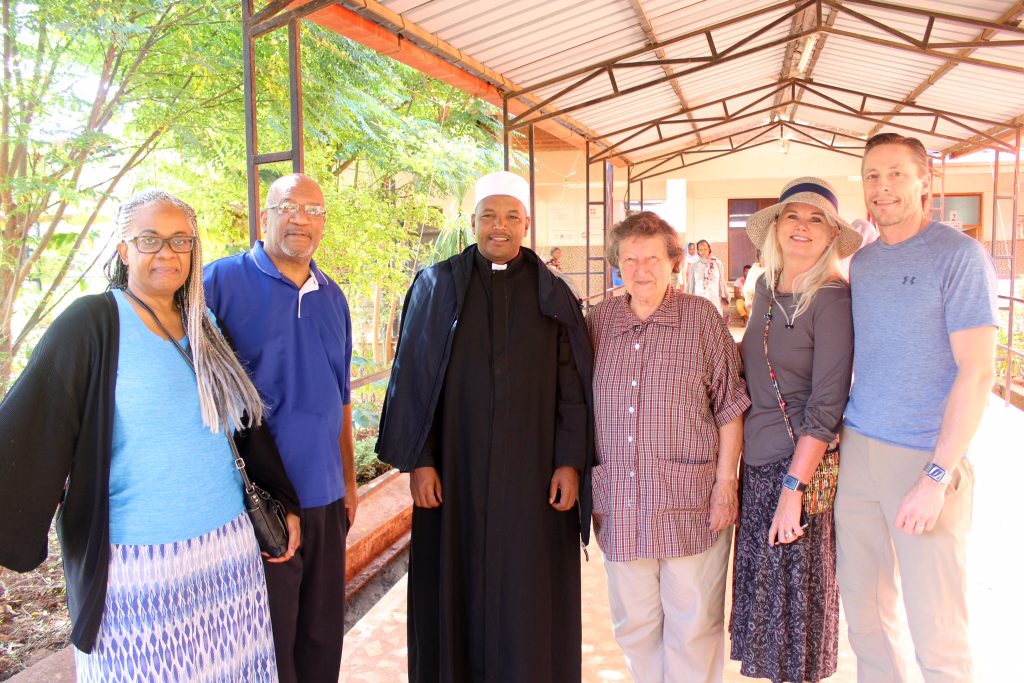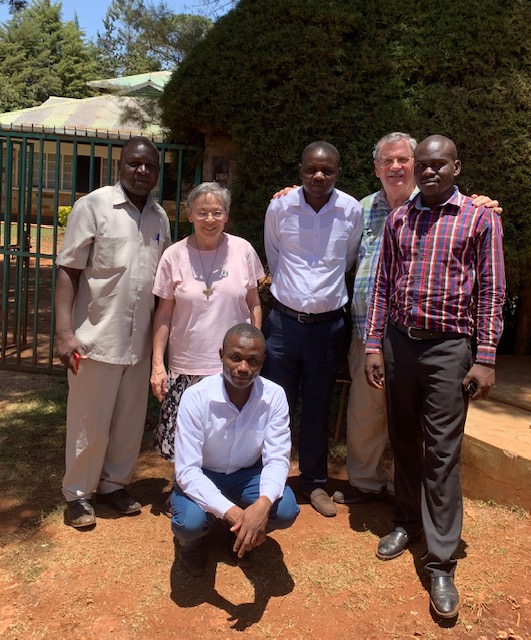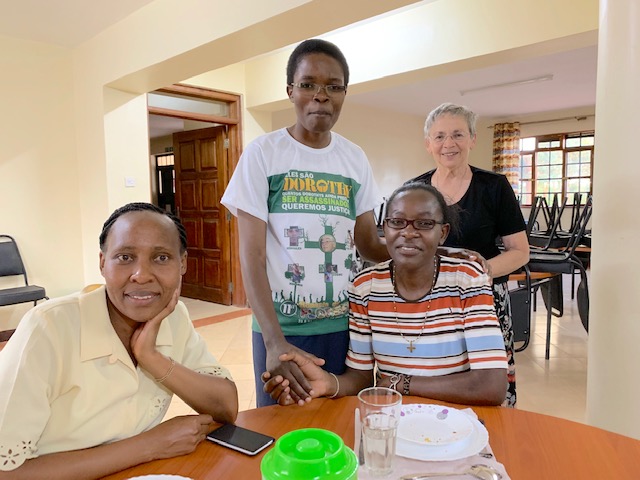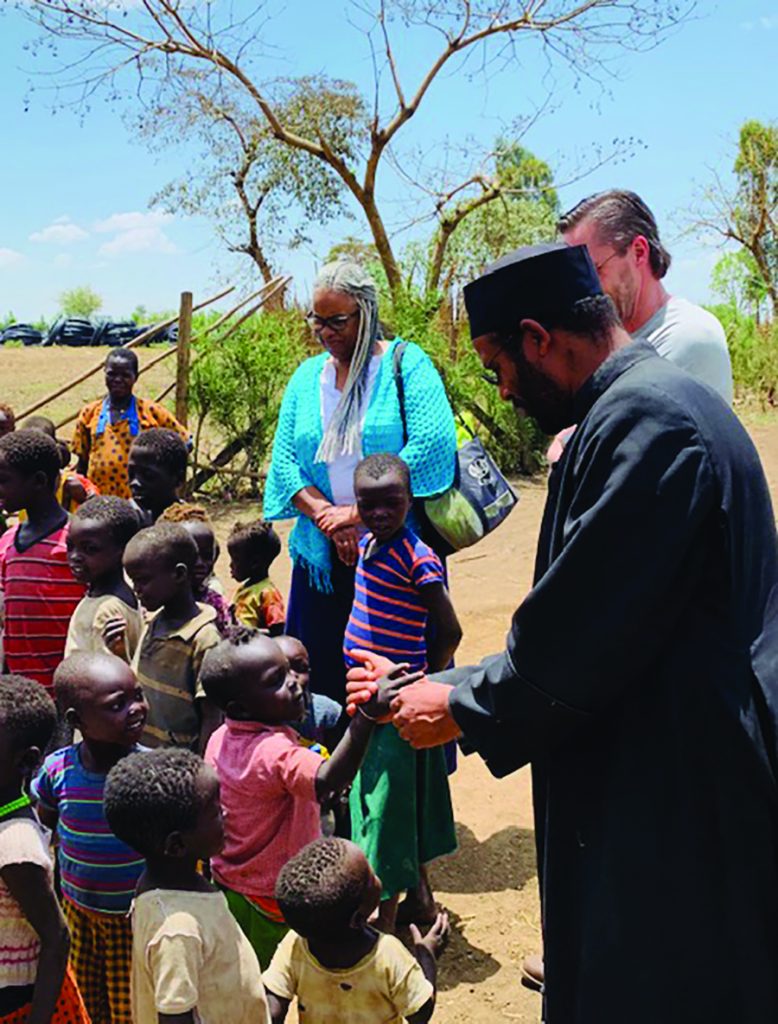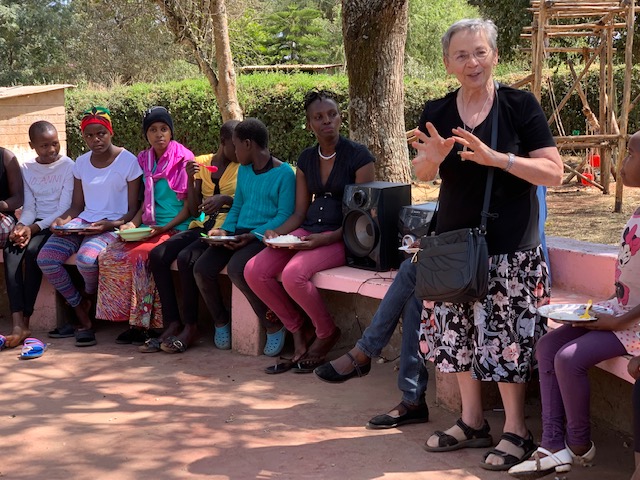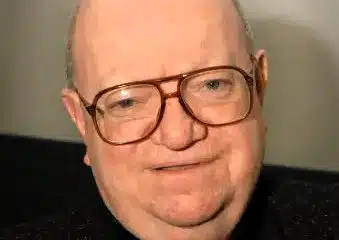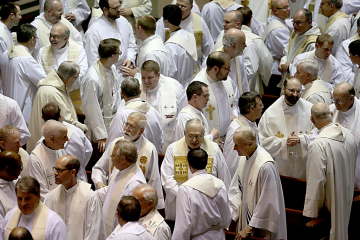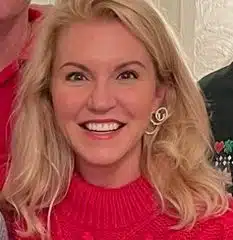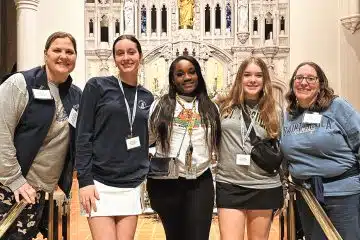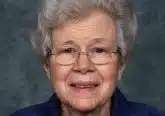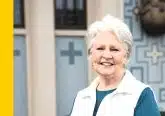Africa Trip Provides Opportunity for Building Relationships
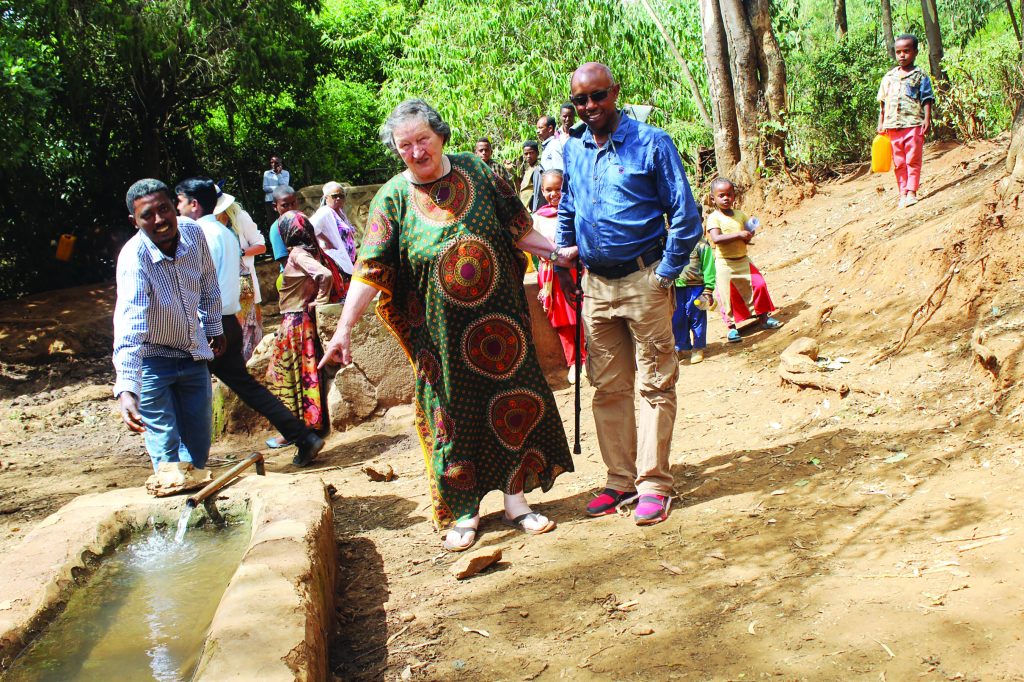
By Eileen Connelly, OSU
Why travel halfway around the world when there is plenty to worry about in our own backyard? Because experiencing the diversity of our Catholic faith and the mutual impact made through building relationships with our brothers and sisters in other cultures can be spiritually enriching and life-changing.
That’s what a group from the archdiocese discovered on a journey to Ethiopia and Kenya in March to visit two missionaries with local ties: Medical Mission Sister Elaine Kohls and Sister of Notre Dame de Namur Gerry Bolzan. Making the trek were Mike Gable, Mission Office director; Deacon Royce Winters, Office of African-American Catholic Ministries director and his wife, Nor-Rita; and Christine Marallen, Prison Ministries director, and her husband, Todd.
The purpose of the trip, explained Gable, was to honor “Missioners from, or who have been long-connected to our archdiocese and Mission Office, letting them know that we admire and applaud their many years of witness to Christ.”
The group visited various hospitals, schools, prisons and water sites, and spent plenty of time visiting the locals, from Church leaders to school children, hearing their stories, attending worship services and making connections.
For Deacon Winters, the trip was deeply personal. “In ministry to the African communities, on several occasions people have said, ‘You have a heart for our people, but you must go home.’ I didn’t quite understand what they were talking about until my recent mission visits to Ethiopia, Kenya and my previous visits to Ghana. The reason for the mission visits was to gain an appreciation for a people and culture that will enhance our encounter of God in the lives of those who are different.”
Born and raised in Cincinnati, Sister Elaine entered her congregation in 1955. After college, her first assignment was to Ghana, where she spent nearly 15 years in hospital administration. Sister Elaine went on to become manager of St. Luke Catholic Hospital and College of Nursing in Wolisso, Ethiopia, when it opened in 2001, and continued this role until 2013. A priority for her has been ensuring clean, safe water, and she has collaborated with development workers and Christian and Muslim leaders to secure a safe supply for the community. She is currently the district coordinator for Ethiopia.
“The most rewarding aspect of my ministry is seeing and recognizing the empowerment of the local communities, better health, girls going to school and being educated, children well-nourished and healthy, homes cleaner and people better off financially,” she said.
“The challenges are many, i.e., financial needs, follow up, what and how to do it, etc.,” Sister Elaine acknowledged, “But, God is on our side and somehow things just manage to work out. It takes a lot of faith and walking on water, but looking back over the years, God was there and I can see God’s doing in so many ways.”
Having lived in Ethiopia for so many years, Sister Elaine has experienced that “farengies” (foreigners) are very much accepted by the locals, who are generally very friendly to visitors and to one another. “The individual needs vary depending on the person, the place, their job, their work, their education or lack of,” she explained. “Living with and among them, we are able to hear and see their needs and respond as possible, but also we get to know them, work with them, listen to them and to the community elders in the process. I have been enriched by just being accepted, seeing the challenges in their lives and how the changes that occur affect and influence them and the need to move with the times.”
The contingent from the archdiocese arrived shortly after the Ethiopian Airlines crash that claimed the lives of 157 people. Deacon Winters admitted the tragedy weighed heavily on the travelers’ minds.
“It was necessary to rid myself of the anxiety of whether we would arrive safely,” he said. “Soon afterwards, I began to appreciate the joy and smiles of a people who struggle with the daily necessities of food and clean water. The level of poverty was staggering, but somehow these holy people of God were able to give thanks to God for providing what they need to sustain life. It was a wonderful example of living day to day and doing it seemingly without complaint.”
Sister Gerry’s journey to Kenya began in 2005 with an email invitation to serve as novice director to meet the formation needs of an increasing number of Kenyan vocations.
“I agreed to come for three years…and have been here now for fourteen!” she said. It has been very rewarding to see these young women grow both as religious sisters and as persons dedicated to St. Julie’s (Billiart, foundress of the order) charism: making known God’s goodness! It is very rewarding to see the Kenyan sisters making St. Julie’s spirit come alive, and they are also assuming various leadership positions within Kenya and beyond.”
After seven years as novice director, Sister Gerry moved in to service younger sisters who have made first vows, but have not yet made final profession. The hope is that formation will eventually be in the hands of the Kenyan sisters as they assume more leadership roles. In addition the spiritual and educational development of their members, the community also initiates them into ministry.
To fulfill St. Julie’s spirit of “educating for life,” the Notre Dame Education Center (NDEC) was established with the aim of giving quality education and spiritual formation within Malava, a small town in western Kenya.
The archdiocesan travelers visited NCEC during their time in Kenya and met teachers and students in both the early childhood and primary sections. The needs are many, Sister Gerry noted, including additional classroom space, adequate sanitary facilities that are especially limited due to problems with electricity and water, and access to safe transportation. Despite these challenges, she said, “We find our students responsive and full of energy in making the dream of NDEC come alive.”
“We were very grateful to share with our visitors from Ohio a brief glimpse of our life and ministry here in Kenya,” she added. “Their interest and support were very encouraging. Their work of creating awareness on the home front, as well as the stories of their own important ministries back in the United States, are a support to us as we continue to respond to our missionary call.”
For Marallen that call is very much relational, hence the interest in the trip and opportunity to visit local prisons. “It was a way for us to give our blessing to the prison system in countries that have far less resources than we do,” she explained. “The biggest ‘aha’ moment was that it doesn’t matter what country we’re in, people are people. When we showed up at the prisons, they knew we could have visited anywhere else, but we chose them. Such joy comes from that, for us and for them. It gave us a really special mutuality that transcends geographic borders.”
“You don’t have to build a well or construct a school on a mission trip,” she added. “Sometimes you can just be. It’s the ministry of presence. Relationship is missional. That’s what was really exciting about this trip.”
